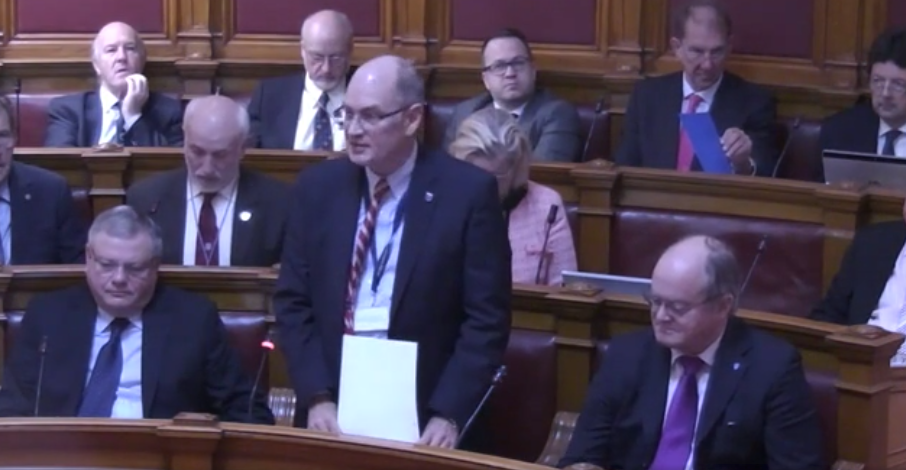

Half a million has been spent on redundancy payments and compromise agreements in the six months since the government announced it was ramping up its efforts to reduce staff numbers.
A total of 13 employees have left the Government of Jersey since the Chief Minister confirmed a need to save £30million to £40million to help stave off an impending black hole in public finances in October.
Weeks later, a government-wide freeze on hiring civil servants – aside from those in “essential” top-level roles – until the end of 2019 was announced.
Despite carrying around 600 vacancies within the organisation, government officials said the measure was necessary to avoid sparking mass redundancies.

Pictured: SEB Vice Chair Richard Buchanan announced a recruitment freeze in November.
It’s now emerged that, in the five months since the government stepped up its efforts to reduce staff numbers in a money-saving bid, £536,274.03 has been spent on staff exits.
Redundancies came at a total cost of £351,016.90. Five employees took redundancy voluntarily, while one was compulsory.
Meanwhile, the government also spent £185,257.13 on “compromise agreements."
The agreements are sometimes referred to as ‘golden handshakes’, and constitute a deal between employer and employee whereby the employer makes a compensation payment to an employee in return for certain claims not to be brought against them, and for confidentiality.
In total, seven employees received a compromise agreement, with one remaining on a zero hours contract with the government.
The figures emerged following a question by Deputy Mary Le Hegarat to the Chairman of the States Employment Board (SEB) – a role that reverted to the Chief Minister after Senator Tracey Vallois stepped down.
It’s not the first time States Members have raised questions over compromise agreements.
SEB Vice Chair Constable Richard Buchanan said the Council of Ministers were “not happy” with the use of compromise agreements when he was grilled over their effectiveness by States Members in December.
He described the use of compromise agreements as a symptom of “unsatisfactory performance management” within the government, explaining that they were routinely being used “where you have no other recourse to remove an employee for poor performance”.
The Vice Chair added that the SEB had commissioned a workshop to “look at the improvement of performance management throughout the whole of the States workforce to ensure that we do not have to resort to compromise agreements”.
Decisions about overall reductions in staff headcount in order to plug the £30million to £40million black hole will be included in the government's 'Target Operating Model' - details of which are due to be announced in the coming weeks.
Comments
Comments on this story express the views of the commentator only, not Bailiwick Publishing. We are unable to guarantee the accuracy of any of those comments.